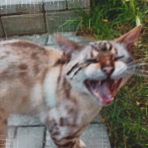Hostul a fost schimbat. Daca vedeti serverul offline readaugati rpg.b-zone.ro sau 141.95.124.78:7777 in clientul de sa-mp
×
Partners of People With Schizophrenia and Bipolar Disorder Have Often a Mental Disorder
-
Recently Browsing 0 members
- No registered users viewing this page.


Recommended Posts